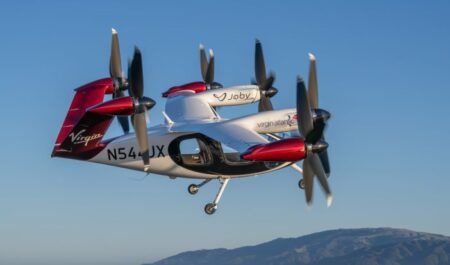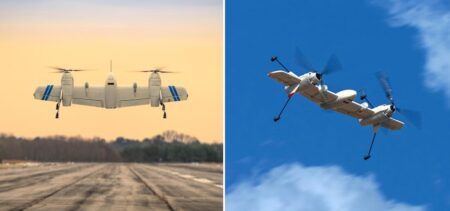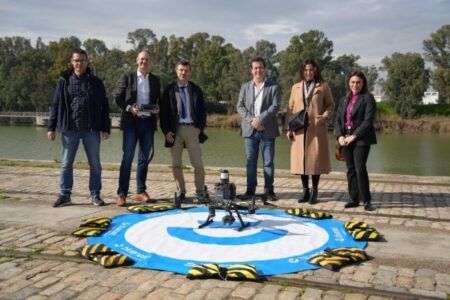Skydweller Aero has made the first successful autonomous test flight of its persistent solar-powered drone, the aircraft formerly known as the record-breaking Solar Impulse 2.
Solar Impulse 2 achieved the world record for the longest non-stop solo flight in 2015 piloted by André Borschberg in 2015. The flight is also the longest continuous renewably-powered flight program in history,
Spanish-American company Skydweller bought Solar Impulse 2 in 2019 to convert it into an unmanned drone capable of staying aloft for months at a time for applications in the commercial and defense markets with heavy payloads.
After modifying the aircraft, Solar Impulse 2 flew as Skydweller for the first time in November 2020. This latest flight in Spain used a proprietary fly-by-wire (FBW) actuation control system SkyDweller has developed to enable autonomous operations.
Skydweller’s test pilot passively rode along on-board to validate the successful transformation from mechanical to human-rated FBW actuation and the successful integration of full authority autonomous control capability.
This series of flight tests conclude the initial validation of the aircraft’s mechanical transformation from a piloted vehicle to a redundant FBW system flown from take-off to landing without any pilot input.
The system demonstrates the basis and airworthiness approval for the high-reliability redundant flight control architecture, significantly decreasing remaining technical risk and accelerating Skydweller’s time-to-market.
The test flight met a number of criteria for safety-critical operations by the Spanish Civil Airworthiness Authority (AESA).
Robert Miller, Skydweller Aero’s CEO said, “Our approach and speed of execution is based on our team’s collective experience designing and developing advanced autonomous platforms. These significant technical accomplishments propel us toward our ultimate goal of perpetual flight.
“Given the proven history of the airframe and this validation of our successful transformation from a piloted aircraft to an autonomous platform, Skydweller is prepared to demonstrate the aircraft’s operational utility.”
Skydweller is also developing an autonomous Vehicle Management System (VMS) to manage payload capacity and available power. The aircraft will have multiple levels of redundancy to enable multi-month missions.
The drone will have a flexible payload system so it can carry equipment to fulfilll functions such as 4G/5G cellular, day/night full motion video, satellite communications and imaging radar. Skydweller is aimed at applications in telecommunications, geospatial, meteorological, and emergency operation markets.
Skydweller said it is now working to mature technology for payload demonstrations and the company’s first fully autonomous and unmanned flight.
Skydweller Aero has offices in Oklahoma City, USA and Madrid, Spain.




